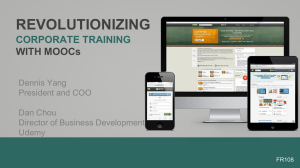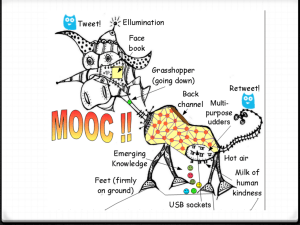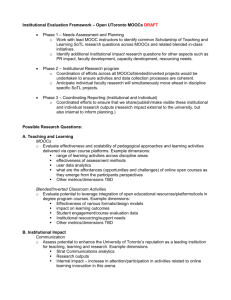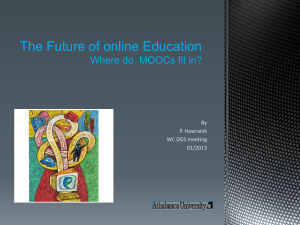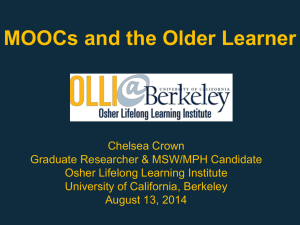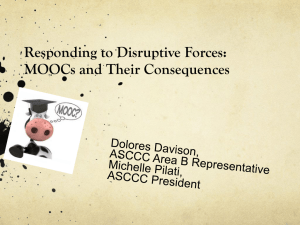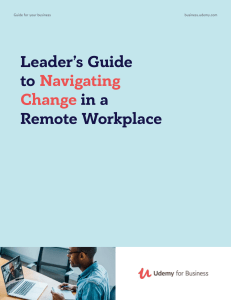MOOCS 101 What is a MOOC? A massive open online course is
advertisement
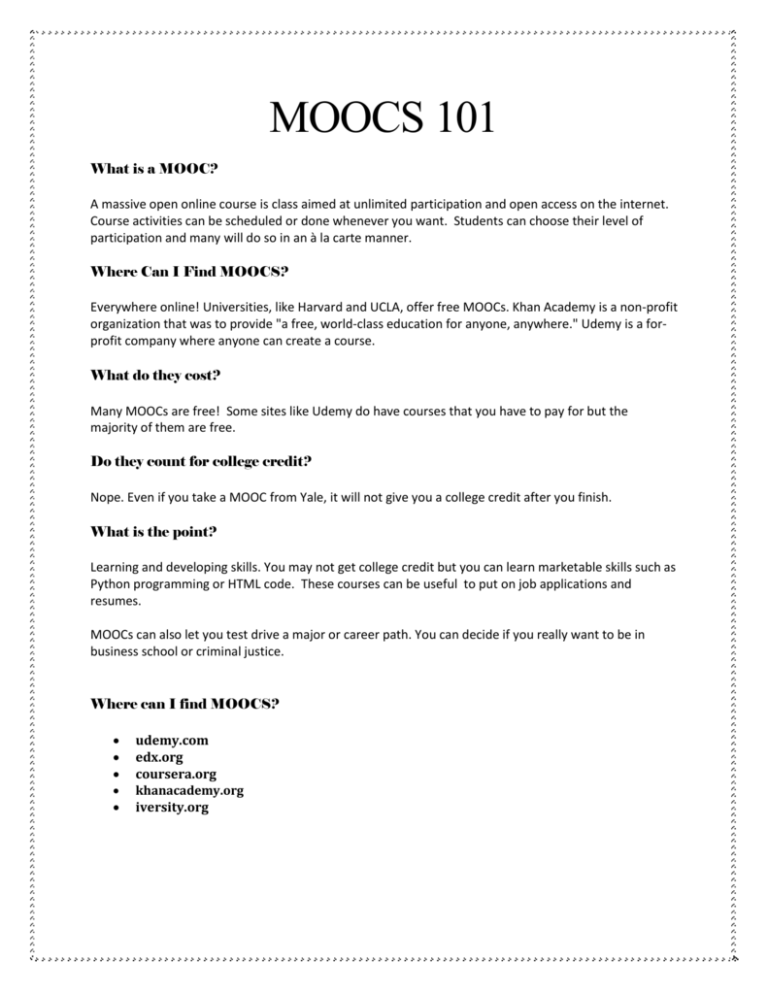
MOOCS 101 What is a MOOC? A massive open online course is class aimed at unlimited participation and open access on the internet. Course activities can be scheduled or done whenever you want. Students can choose their level of participation and many will do so in an à la carte manner. Where Can I Find MOOCS? Everywhere online! Universities, like Harvard and UCLA, offer free MOOCs. Khan Academy is a non-profit organization that was to provide "a free, world-class education for anyone, anywhere." Udemy is a forprofit company where anyone can create a course. What do they cost? Many MOOCs are free! Some sites like Udemy do have courses that you have to pay for but the majority of them are free. Do they count for college credit? Nope. Even if you take a MOOC from Yale, it will not give you a college credit after you finish. What is the point? Learning and developing skills. You may not get college credit but you can learn marketable skills such as Python programming or HTML code. These courses can be useful to put on job applications and resumes. MOOCs can also let you test drive a major or career path. You can decide if you really want to be in business school or criminal justice. Where can I find MOOCS? udemy.com edx.org coursera.org khanacademy.org iversity.org TOP TEN MOOCS! Udemy Free Courses – Udemy is an example of a site allows anyone to build or take online courses. Udemy’s site exclaims, “Our goal is to disrupt and democratize education by enabling anyone to learn from the world’s experts.” The New York Times reported that Udemy, “recently announced a new Faculty Project, in which award-winning professors from universities like Dartmouth, the University of Virginia and Northwestern offer free online courses. Its cofounder, Gagen Biyani, said the site has more than 100,000 students enrolled in its courses, including several, outside the Faculty Project, that charge fees.” ITunesU Free Courses – Apple’s free app “gives students access to all the materials for courses in a single place. Right in the app, they can play video or audio lectures. Read books and view presentations.” Stanford Free Courses - From Quantum Mechanics to The Future of the Internet, Stanford offers a variety of free courses. Stanford’s – Introduction to Artificial Intelligence was highly successful. According to Pontydysgu.org, “160000 students from 190 countries signed up to Stanford’s Introduction to AI” course, with 23000 reportedly completing.” Check out Stanford’s Engineering Everywhere link. UC Berkeley Free Courses – From General Biology to Human Emotion, Berkley offers a variety of courses. Check out: Berkeley Webcasts and Berkeley RSS Feeds. MIT Free Courses – Check out MIT’s RSS MOOC feed. Also see: MIT’s Open Courseware. Duke Free Courses – Duke offers a variety of courses on ITunesU. Harvard Free Courses – From Computer Science to Shakespeare, students may now get a free Harvard education. “Take a class for professional development, enrichment, and degree credit. Courses run in the fall, spring, or intensive January session. No application is required.” UCLA Free Courses – Check out free courses such as their writing program that offers over 220 online writing courses each year. Yale Free Courses – At Open Yale, the school offers “free and open access to a selection of introductory courses taught by distinguished teachers and scholars at Yale University. The aim of the project is to expand access to educational materials for all who wish to learn.” Carnegie Mellon Free Courses – Carnegie Mellon boosts “No instructors, no credits, no charge.”
